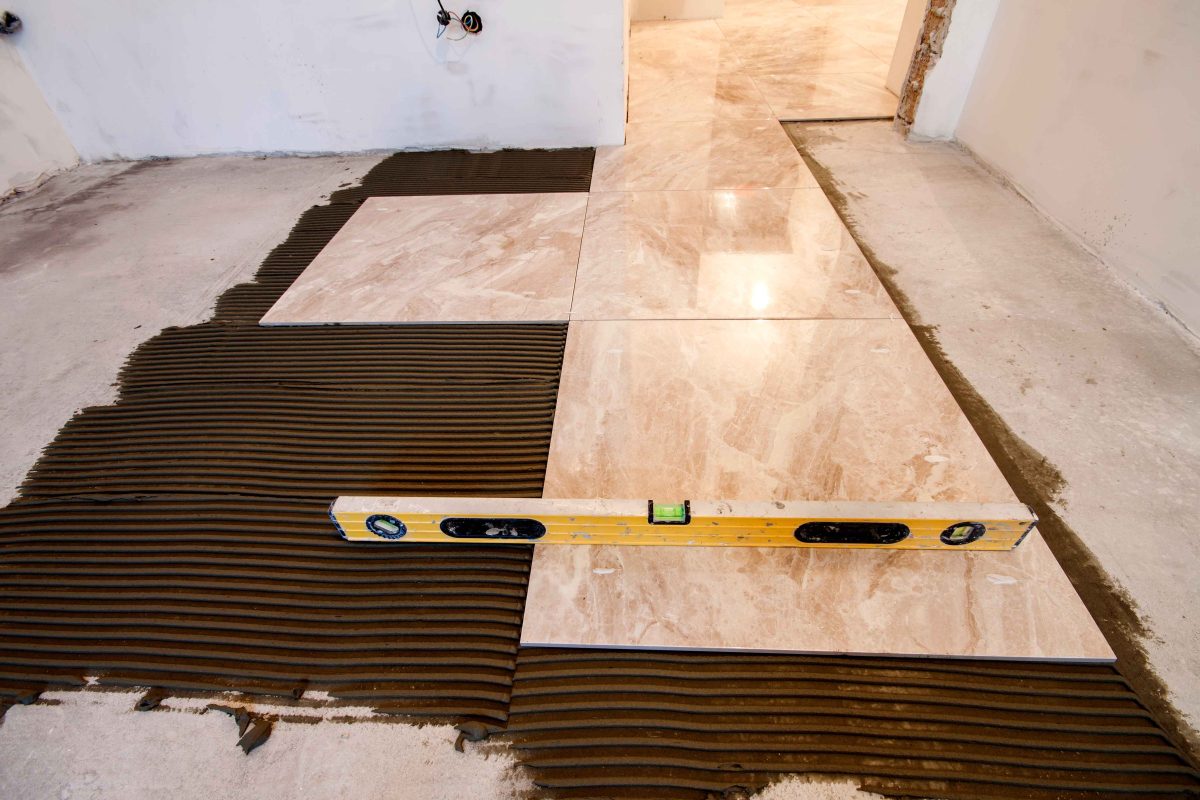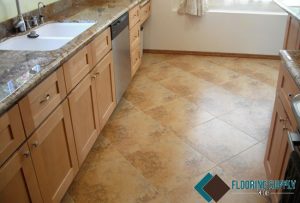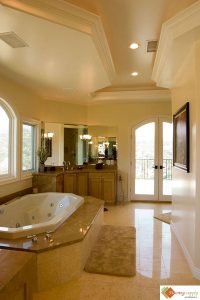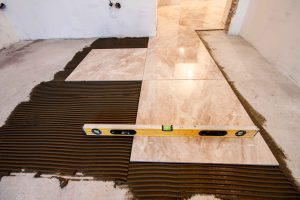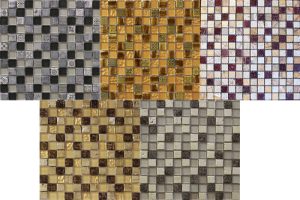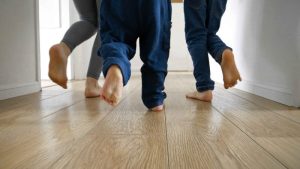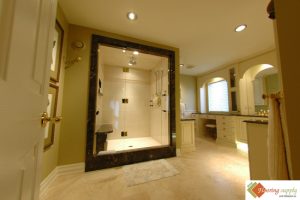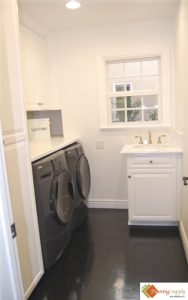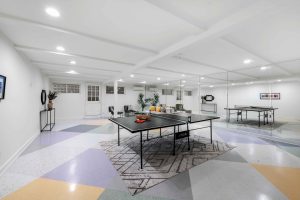Moisture is the natural enemy of most floor coverings. A steamy shower, an overflowing washing machine, or a spilled stockpot can spell trouble for flooring that absorbs water or lets it seep below the surface. Swelling, warping, mold, and stained grout lines all begin the same way—tiny droplets finding their way into vulnerable seams. The good news is that modern building materials offer stylish, budget-friendly ways to keep water at bay. From rigid core luxury vinyl to classic porcelain, today’s waterproof flooring tiles and planks give every room the durability it needs without forcing homeowners to sacrifice looks or comfort.
This guide explains why moisture resistance matters, breaks down the best products on the market, and shows how to choose waterproof flooring for bathrooms, kitchens, laundry rooms, and basements. By the end, you’ll know exactly which surface can stand up to puddles, pet accidents, and humid Canadian winters.
Why Moisture-Resistant Flooring Matters
- Structural Integrity – When water seeps through joints or wicks into subfloors, plywood can delaminate, concrete can crack, and adhesives can fail. Over time, that damage threatens the entire structure under your feet.
- Indoor Air Quality – Dark, damp gaps encourage mold spores, dust mites, and bacteria. Waterproof materials create a barrier that keeps moisture on the surface, making cleanup quick and preventing long-term health risks.
- Maintenance Costs – Replacing warped hardwood or regrouting saturated tile adds up fast. Paying a little more for genuine waterproof flooring tiles often saves thousands in repairs and insurance deductibles.
- Resale Value – Real-estate agents consistently highlight waterproof floors in listings for bathrooms and basements because buyers know they’ll avoid moisture-related headaches later.
Best Waterproof Flooring Options for High-Moisture Areas
Waterproof Vinyl Plank and Tile (LVP & LVT)
Rigid core luxury vinyl flooring—sold in both plank (LVP) and tile (LVT) formats—pairs a dense, waterproof core with a scratch-resistant wear layer and click-together edges that lock out liquids. The latest generations use stone-plastic composite (SPC) or wood-plastic composite (WPC) cores, both dimensionally stable in steamy rooms.
- Pros: Warm underfoot, installs directly over many existing floors, realistic wood or stone visuals, easy DIY.
- Cons: Needs an expansion gap, can dent under very heavy furniture, not as hard as porcelain.
- Ideal Spaces: Kids’ bathrooms, rental kitchens, below-grade basements where temperature fluctuates.
Porcelain and Ceramic Tiles
Porcelain earns its reputation as the gold standard for wet zones because it absorbs less than 0.5 % of its weight in water. Dense clays fired at high temperatures create a glass-like body that shrugs off splashes. Glazed ceramic tile performs similarly, though its slightly higher absorption rate makes grout quality more critical.
- Pros: Nearly impermeable surface, huge style range, excellent heat tolerance for radiant-floor systems.
- Cons: Cold to bare feet without in-floor heat, grout maintenance, professional installation recommended for large formats.
- Ideal Spaces: Walk-in showers, spa-style bathrooms, busy mudrooms where boots track in snow.
Stone Flooring (Slate, Granite, and More)
Natural stone offers unmatched beauty and long life. Slate’s cleft texture hides scuffs, while granite’s crystal structure resists stains. Proper sealing is essential because even the densest stone contains microscopic pores, but when maintained, stone handles standing water better than many people expect.
- Pros: Unique appearance, high resale appeal, cool surface in hot climates.
- Cons: Higher price, periodic resealing, variable slip resistance.
- Ideal Spaces: Gourmet kitchens, covered outdoor entryways, upscale basements with wine cellars or home bars.
Waterproof Laminate Flooring
Traditional laminate has a bad reputation around spills, yet new waterproof versions use tight-locking edges, moisture-repelling coatings, and improved fiberboard cores to survive everyday mishaps. They offer a harder walking surface than vinyl and convincing wood textures at mid-range prices.
- Pros: Rigid feel underfoot, scratch resistance, familiar plank sizes.
- Cons: Edges can swell if water sits for hours, cannot be wet-mopped aggressively, warranties require specific underlayment.
- Ideal Spaces: Powder rooms, pet-friendly dining areas, upper-floor laundry closets where weight is a concern.
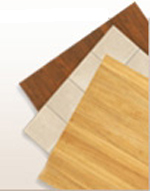
Choosing the Right Waterproof Flooring for Each Room
Bathroom
- Top Choice: Porcelain tile in matte or textured finish for slip resistance. Pair with epoxy grout to lock out moisture.
- Budget Alternative: SPC luxury vinyl tile with stone visuals; perfect for quick remodels and renters seeking waterproof flooring for bathrooms.
- Design Tip: Use larger formats on walls and smaller mosaics on shower floors to balance traction and easy cleaning.
Kitchen
- Top Choice: Rigid core LVP or LVT with a 20 mil wear layer ensures durability against dropped pans. Its click system floats over subfloors without nails, avoiding punctures where water could seep.
- Premium Upgrade: Honed granite squares sealed with a penetrating sealer provide a chef-worthy stage that handles spaghetti sauce splatters.
- Maintenance Note: Lay walk-off mats near sinks and dishwashers even with waterproof surfaces to keep grit from scratching.
Laundry/Mudroom
- Top Choice: Waterproof laminate with beveled edges stands up to detergent spills yet feels solid under laundry baskets.
- Utility Factor: Add a floor drain if possible; the laminate’s locking design can be lifted and dried after major leaks.
- Safety Tip: Slate or textured porcelain offers extra grip when wet boots march through.
Basement
- Top Choice: SPC vinyl plank rated for below-grade installation resists hydrostatic pressure better than wood.
- Comfort Boost: Install a thermal underlayment designed for vinyl to reduce chill and dampen footfall noise.
- Alternative Path: Engineered stone composite tiles click together without grout, making future subfloor inspections simple.
Frequently Asked Questions
Q: Are all vinyl floors waterproof?
A: No. Traditional sheet vinyl resists surface spills, but the felt or fiberglass backing can absorb moisture through seams. Look for labels such as “100 % waterproof” or “SPC/WPC core” to ensure full protection, especially when shopping for waterproof flooring for bathrooms.
Q: Can I install waterproof flooring over existing floors?
A: Yes, many click-lock systems float over ceramic tile, hardwood, or even previous vinyl, provided the surface is level, clean, and sound. Always follow the manufacturer’s thickness limits and door-clearance guidelines, and remember that adding underlayment may raise floor height.
Q: How long do waterproof flooring tiles last?
A: Porcelain and natural stone can exceed 50 years with proper care. High-quality rigid core vinyl often carries 15- to 25-year residential wear warranties, while waterproof laminate typically ranges from 10 to 20 years. Longevity depends on traffic, maintenance, and adherence to installation instructions.
Moisture-prone rooms no longer force homeowners to choose between style and performance. Advances in core technology, glazing techniques, and surface coatings mean today’s waterproof flooring tiles and planks can look like century-old barn wood or Italian marble while laughing off puddles. The key is matching each material to its environment: porcelain for perpetual splash zones, rigid core vinyl for flexible living spaces, sealed stone for timeless luxury, and next-gen laminate where impact and scratch resistance matter most. By understanding how water moves through a home—and by investing in products engineered to stop it—you’ll protect subfloors, preserve indoor air quality, and enjoy beautiful floors that last for decades.
